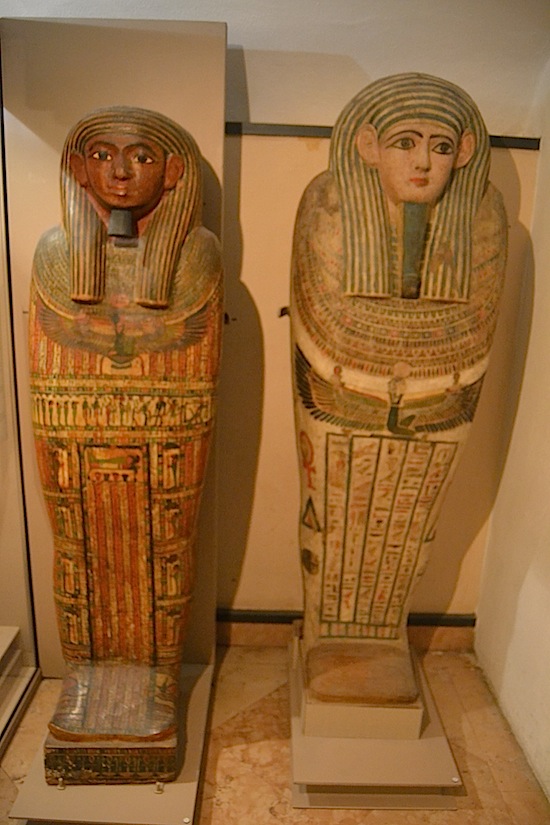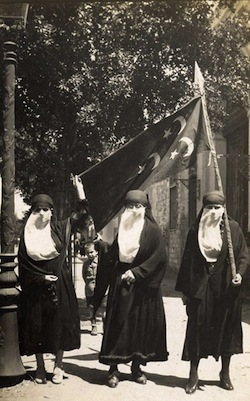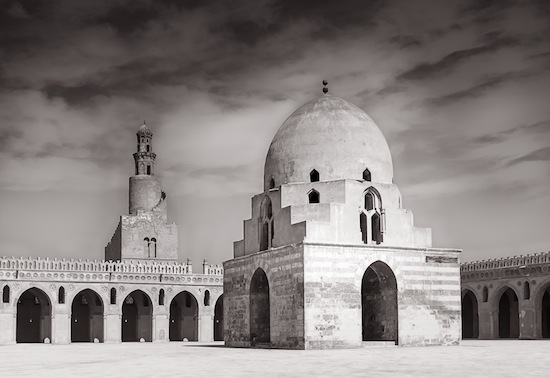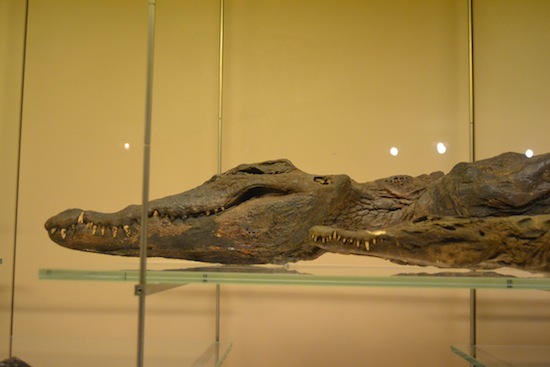Off to a Writing Retreat in Cairo

On the left is the anthropoid coffin of Wenmontu, of the 22nd or
23rd dynasty (944-716 BC). To the right is the coffin of Mesiset,
late 22nd to early 25th dynasty (c. 750 BC). These are in the
archaeological museum of Bologna, which has an excellent
Etruscan collection I wrote about in a previous post.
Photo copyright Sean McLachlan.
I’m stepping out of the blogosphere for the next couple of weeks to do a writing retreat in Cairo. As Black Gate regulars know, I usually go to Tangier, but now that my Tangier novel is out, I’m changing location to work on a new project.
It’s a neo-pulp adventure novel tentatively titled The Masked Man of Cairo: The Case of the Purloined Pyramid and follows the adventures of a disfigured World War One veteran turned antiquities dealer who gets tangled up in the machinations of the Thule Society in 1919. And yes, a pyramid really was stolen from Giza! Well, sort of.

The year 1919 makes a great backdrop for a novel because there was a huge nationalistic movement against the British in that year. Mass demonstrations clogged the streets of Cairo, and in the countryside the fellahin (peasants) and British troops fought running battles that left hundreds killed.
The spark that ignited the revolution was the arrest and deportation of several leaders of the independence movement, but resentment had been simmering for years. Egypt had been occupied by British troops in 1882 even though it remained nominally under Ottoman rule. Once the war broke out, the British Empire took over formal governance and Egypt became a protectorate. Now it looked like it would become a full colony. The Egyptians had their own ideas.
They certainly had a lengthy list of grievances. The British Empire leaned heavily on the Egyptian peasants for the war effort, drafting many into the Labor Corps and buying food and cotton at prices the government set. Many families began to go hungry. While in 1919 the war was over, the cumulative effect of these measures had broken the household economies of many rural families. Tension had risen in Cairo too, thanks to the poor behavior of the tens of thousands of allied soldiers based there throughout the war.
In Cairo there were mass demonstrations and the predictable heavy-handed clampdown by colonial police. This is brilliantly depicted in the Cairo Trilogy by Naguib Mafouz, which I’ve been avidly devouring as part of my research.
I haven’t been to Egypt since 1991 so I suspect I’ll notice a lot of changes to the city. The great monuments of the past will still be there, of course. While I’ll be seeing some of the ancient sites near Cairo, I’ll be focusing most of my time in the Islamic Quarter, where my protagonist lives and where most of the medieval buildings are.

Fountain and mosque of Ibn Tulun, 884 AD.
Image courtesy Wikimedia Commons.
My hotel is right next to Tahrir Square, so if there’s another Egyptian Revolution, I’ll be in the middle of the action.
So I’ll see y’all when I get back and I’ll have plenty of Egyptian posts for you. In the meantime, you can follow my travels on my Instagram account, where I’ll be posting photos every day. I might even include a couple of clues as to what happened to that pyramid. You don’t have to have an account of your own to see the photos, only if you want to like, share, comment, and all that other social media nonsense.
See you soon!

I’ve always had a soft spot in my heart for
mummified crocodiles, don’t you? Image copyright Sean McLachlan.
Sean McLachlan is the author of the historical fantasy novel A Fine Likeness, set in Civil War Missouri, and several other titles. His novel set in Tangier, The Last Hotel Room, is on sale for $1 through the Amazon US Kindle store for all of February. Find out more about him on his blog and Amazon author’s page.
I remember Naguib Mafouz’s Cairo Trilogy. I read it on my honeymoon. Well, I read the first book. Then I got…. distracted.
I recall it being slow moving, but a terrific insight into a very specific place and time (the book, not my honeymoon).